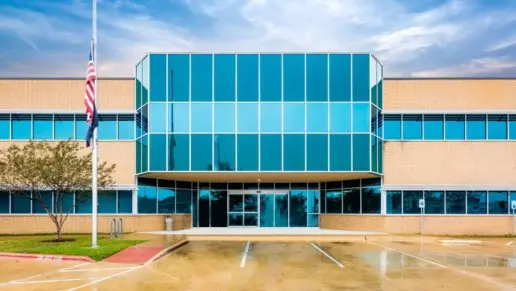About Gulf Coast Center
The Gulf Coast Center is located in Galveston, Texas. It provides substance abuse services specially created with real people in mind. The center offers drug rehab services alongside dual-diagnosis treatment in its inpatient and outpatient programs. Gulf Coast Center also provides individuals with specialized female substance abuse services.
The inpatient treatment program offered at Gulf Coast Center is operational for 30 days and has been created for people without insurance or the ability to pay for substance abuse services. Those in the Galveston and Brazoria counties can capitalize on this and should expect services to be delivered through subcontracted residential providers.
Those actively working toward long-term recovery and sobriety can enroll in this center’s comprehensive outpatient program. The program provides individualized treatment programs comprising individual and group counseling that reflect patients’ needs. Those enrolled should expect recovery services to address relapse prevention, relationship issues, mental health concerns, and sober network building.
Women 18 and older can receive specialized female substance use services at Gulf Coast Center. These services include drug and alcohol education, specialized parenting support, and other substance abuse recovery components like therapy.
Although inpatient treatment services are free, other drug rehab services offered at Gulf Coast Center require payment based on a sliding fee scale. This rehabilitation center also accepts many commercial insurance plans that could include ComPsych, TRICARE, United Healthcare, Aetna, Cigna, Magellan, Blue Cross Blue Shield, and others.
Latest Reviews
Rehab Score
Other Forms of Payment
Medicaid is a state based program that helps lower-income individuals and families pay for healthcare. Medicaid covers addiction treatment so those enrolled can use their coverage to pay for rehab. When a program accepts Medicaid the client often pays very little or nothing out of their own pocket.
Medicare is a federal program that provides health insurance for those 65 and older. It also serves people under 65 with chronic and disabling health challenges. To use Medicare for addiction treatment you need to find a program that accepts Medicare and is in network with your plan. Out of pocket costs and preauthorization requirements vary, so always check with your provider.
Military members, veterans, and eligible dependents have access to specific insurance programs that help them get the care they need. TRICARE and VA insurance can help you access low cost or no cost addiction and mental health treatment. Programs that accept military insurance often have targeted treatment focused on the unique challenges military members, veterans, and their families face.
Addiction Treatments
Levels of Care
Treatments
Many of those suffering from addiction also suffer from mental or emotional illnesses like schizophrenia, bipolar disorder, depression, or anxiety disorders. Rehab and other substance abuse facilities treating those with a dual diagnosis or co-occurring disorder administer psychiatric treatment to address the person's mental health issue in addition to drug and alcohol rehabilitation.
Mental health rehabs focus on helping individuals recover from mental illnesses like bipolar disorder, clinical depression, anxiety disorders, schizophrenia, and more. Mental health professionals at these facilities are trained to understand and treat mental health issues, both in individual and group settings.
Programs


Clinical Services
Cognitive Behavioral Therapy (CBT) is a therapy modality that focuses on the relationship between one's thoughts, feelings, and behaviors. It is used to establish and allow for healthy responses to thoughts and feelings (instead of unhealthy responses, like using drugs or alcohol). CBT has been proven effective for recovering addicts of all kinds, and is used to strengthen a patient's own self-awareness and ability to self-regulate. CBT allows individuals to monitor their own emotional state, become more adept at communicating with others, and manage stress without needing to engage in substance abuse.
Research clearly demonstrates that recovery is far more successful and sustainable when loved ones like family members participate in rehab and substance abuse treatment. Genetic factors may be at play when it comes to drug and alcohol addiction, as well as mental health issues. Family dynamics often play a critical role in addiction triggers, and if properly educated, family members can be a strong source of support when it comes to rehabilitation.
Group therapy is any therapeutic work that happens in a group (not one-on-one). There are a number of different group therapy modalities, including support groups, experiential therapy, psycho-education, and more. Group therapy involves treatment as well as processing interaction between group members.
In individual therapy, a patient meets one-on-one with a trained psychologist or counselor. Therapy is a pivotal part of effective substance abuse treatment, as it often covers root causes of addiction, including challenges faced by the patient in their social, family, and work/school life.
Accreditations

The Substance Abuse and Mental Health Services Administration (SAMHSA) is a branch of the U.S. Department of Health and Human Services. Established in 1992 by congress, SAMHSA's mission is to reduce the impact of substance abuse and mental illness on American's communities.
SAMHSA Listed: Yes
Contact Information
4700 Broadway Avenue J
Suite F103
Galveston, TX 77551


